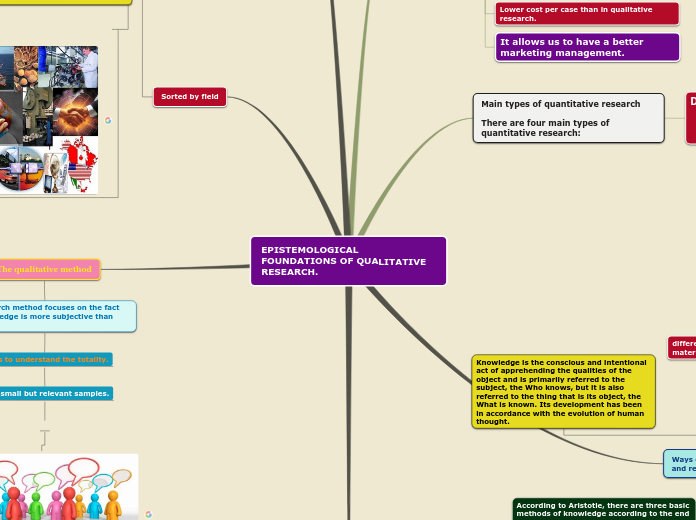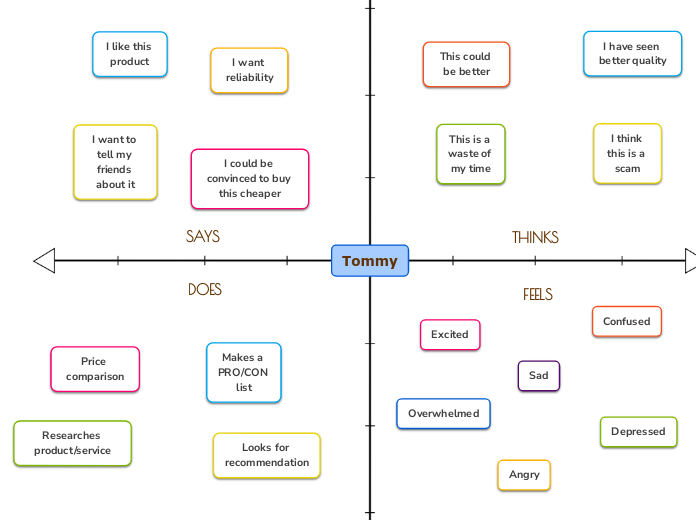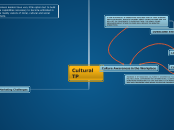EPISTEMOLOGICAL FOUNDATIONS OF QUALITATIVE RESEARCH.
The qualitative method
This research method focuses on the fact that knowledge is more subjective than objective.
seeks to understand the totality.
uses small but relevant samples.
Sorted by field
psychology, sociology, physics, history, economics.
ACCORDING TO PHILOSOPHERS
Kan in the 18th century proposed the aprori and posteriori judgments.
Galileo takes the importance of mathematics to be able to analyze nature.
Bacon's method consisted in inferring from the use of analogy, from the characteristics or properties of the largest group to which the particular data belongs, leaving for later experience the correction of obvious errors.
According to Aristotle, there are three basic methods of knowledge according to the end pursued in each of them: theoretical knowledge, which seeks knowledge for its own sake; productive knowledge, which aspires to know how to make a useful or beautiful product; and practical knowledge, which seeks to be a guide to action.
Ways of conceiving the nature of knowledge and reality
qualitative current
positive current
Empirical knowledge
difference between empirical, objective, or material reality
Knowledge is the conscious and intentional act of apprehending the qualities of the object and is primarily referred to the subject, the Who knows, but it is also referred to the thing that is its object, the What is known. Its development has been in accordance with the evolution of human thought.
Main types of quantitative research
There are four main types of quantitative research:
Descriptive, correlational.
Causal-comparative.
Quasi-experimental.
Experimental research.
MAIN ADVANTAGES
It allows us to have a better marketing management.
Lower cost per case than in qualitative research.
Possibility of performing advanced statistical analysis and predictive models of the behavior of individuals or markets.
Ability to measure and gauge the magnitude of groups, segments, types of people, brand recall, etc.
Increased reliability of information: stable, secure, congruent, consistent data, the same as itself at different times and predictable.
The advantage of a sample is that it allows us to infer how a population thinks.









